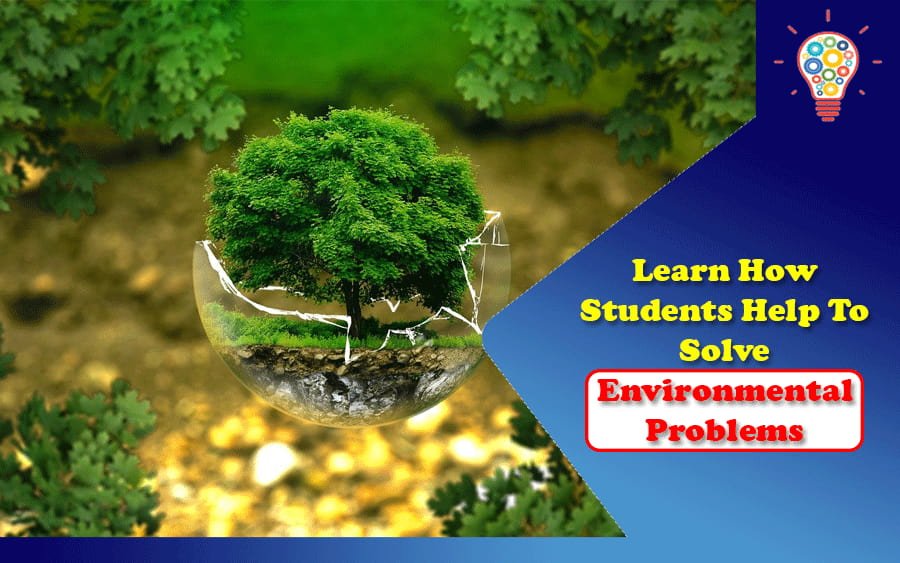Students are always being taught how they can make a positive impact on the world around them.
Classes and groups are available to students who want to learn more about social issues, and these places offer advice on how to get involved. In recent years, environmental and resource conservation has become a popular subject. There are numerous ways that you, yes YOU, may contribute to protecting our home planet.
Table of Contents
How Can Students Make an Environmental Impact
If your university doesn’t already have an environmental club, you may want to consider starting one. You might start a number of campaigns or projects that could have a positive impact on your peers’ behavior and the environment.
- Increasing the amount of waste recycled in the halls
- Removing from campus all single-use plastics
- Organizing activities like clothing swaps or wine tastings that are environmentally friendly
- Enhancing the natural habitats on your campus
8 Simple Ways to Protect the Environment
Even as a student, you can easily become more eco-friendly. Taking these steps will help you and future generations construct a brighter future. Simply follow these measures to start being more eco-friendly:
1. Reuse and Recycle Your Books
If you keep them on your bookshelf, they won’t hurt anyone, but you never know who might benefit from them if you recycle or reuse them.
The books you send to us will either be sold or recycled, depending on whether they can be put to use elsewhere. In doing so, you’ll not only be allowing someone else the opportunity to study, but you’ll also be saving yourself money. A win-win situation is possible.
2. Get Rid of Paper
With the advent of electronic resources and the ability to take notes on a phone (if you’re paying attention anyhow), it’s possible to achieve almost everything these days without the use of paper.
As a student, if you think your university could use less paper, offer comments and verify their paper use policy.
3. Invest in Eco-Friendly Products
When you’re purchasing school supplies like folders and pencils, look for brands that are environmentally friendly. Invest in one long-lasting refillable pen rather than purchasing a slew of cheap ones.
4. Save Electricity
It’s crucial to be aware of how much electricity we consume and make adjustments so that we can conserve resources while we look for more sustainable alternatives.
One of the easiest ways to reduce your consumption of energy is to cut back on the number of lights that you have on, unplug old equipment, and wash only when absolutely necessary.
5. Print Only What You Need
We’ve all had the professor who demanded a hard copy of the ten-page paper database of essays about environment that is due next week, or the teacher who demanded a copy of every reading before class. These are fine, but it appears that they are unaware of the environmental harm caused by their excessive use of paper. What options do you have? Bring an e-reader or laptop to class and read the readings from there, if allowed by your instructor. Otherwise, print on both sides of the page to save paper.
6. Become a Volunteer
Involvement in local charity and community service can have a positive impact on the environment.
Involvement can be done in a variety of ways, from rubbish pickups and river cleanups to fundraising events and administrative duties like public relations or legal support.
7. Support Your Local Food Products
Go online and find out where your local farmers’ markets and butchers are. Local markets should be accessible if you reside near a city or town center.
Shopping at a local store is healthy for the environment, and it’s also helpful for the local economy because you’re reducing the need for transportation.
8. Stop Throwing Garbage Away
It is safe to assume that if you care about the environment, you wouldn’t do this in the first place! However, if you do, it might be disastrous.
Animals and plants may consume the waste and soil may absorb hazardous substances from water or sewage systems.
Conclusion
Humanity has received absolute love and care from the environment. Not only does the planet itself have to function, but so must the people who call it home. It is possible to take what is provided. Remember that the Earth provides us with the means to survive. If you take care of it, it will continue to pave the way for prosperity; if you ignore it, it will cause havoc for everyone. Right or wrong, you know. You know what’s good and what’s bad. Just take action on what you’ve learned. Mother Earth needs our help, therefore let’s work together!
Bio
Jeremy Raynolds is a master storyteller who excels in a wide range of genres, including science fiction and fantasy. After working for a number of websites in her professional capacity, she acquired a desire to make complex social science issues more approachable and engaging to the general public. Despite her preference for natural experiments, she appreciates qualitative methods of all kinds.
Read also: 5 Tips To Be More Environment Friendly In Your House


I am SO happy I found this Article,
excellent helpful article.
Thank you very much and I wish you a long life
so good,thanks for that
Thank you for helping to keep our family safe.